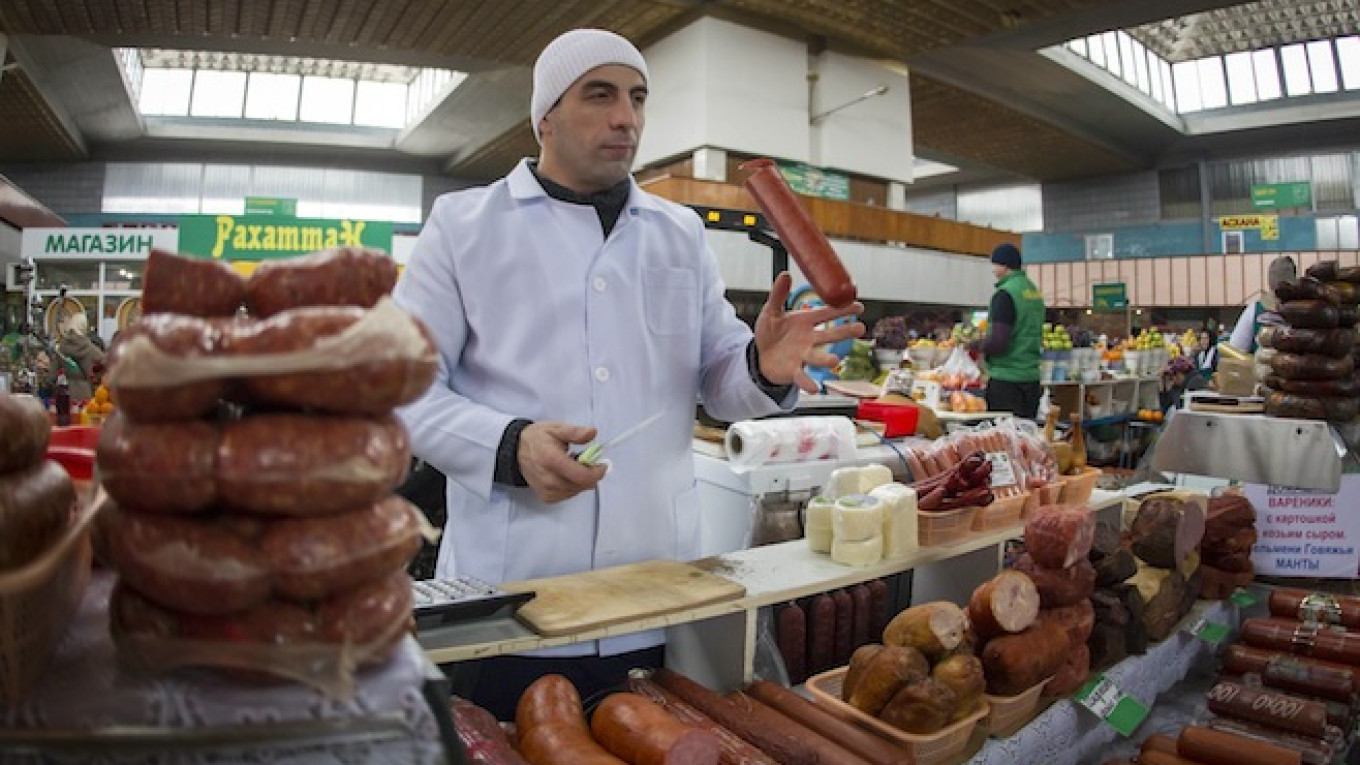Russia hopes to be completely self-reliant on domestically produced milk, meat and vegetables by 2020, Agriculture Minister Alexander Tkachev said Friday, the Vedomosti newspaper reported.
The majority of the country?€™s fruit will also be grown in Russia, with the exception of citrus and other exotic fruit, Tkachev announced at the ongoing G20 agricultural meeting in China.
"We have set ourselves ambitious goals,?€? Tkachev said. "Our agricultural production was up by 17 percent last year compared with 2014, exceeding $76 billion for the first time. We have the kind of high-tech production that rivals modern agricultural holdings and farms that can compete with Western companies."
Increased production in areas such as grain and poultry will allow Russia to boost exports while supplying Russian demand, Tkachev said.
The volume of Russian grain exports in the last 10 years has increased almost three times to reach 30 million tons, while poultry production has increased threefold in the last decade, the minister said.
The drive for self-reliance comes at a time of economic crisis and of growing diplomatic tensions between the Kremlin and a host of other nations.
Food prices in Russia rose sharply after the Kremlin began an embargo on food produced by countries who imposed sanctions on Russia following the annexation of Crimea in 2014.
The embargo may now be extended until the end of 2017, Russian Prime Minister Dmitry Medvedev announced on May 27.
Moscow also halted the imports of the majority of Turkish fruit and vegetable products as part of the sanctions imposed by the Kremlin over the downing of a Russian Su-24 fighter jet near the Syrian border in November.
Fifty-two percent of Russians have switched to cheaper food products as a result of inflation and other economic pressures, data from the Nielsen Consumer Confidence Index reported in April 2016.
Last year, Russian GDP shrank 3.7 percent. A sharp weakening of the ruble drove annual inflation to 12.9 percent and Russians?€™ real wages contracted 9.5 percent.
A Message from The Moscow Times:
Dear readers,
We are facing unprecedented challenges. Russia's Prosecutor General's Office has designated The Moscow Times as an "undesirable" organization, criminalizing our work and putting our staff at risk of prosecution. This follows our earlier unjust labeling as a "foreign agent."
These actions are direct attempts to silence independent journalism in Russia. The authorities claim our work "discredits the decisions of the Russian leadership." We see things differently: we strive to provide accurate, unbiased reporting on Russia.
We, the journalists of The Moscow Times, refuse to be silenced. But to continue our work, we need your help.
Your support, no matter how small, makes a world of difference. If you can, please support us monthly starting from just $2. It's quick to set up, and every contribution makes a significant impact.
By supporting The Moscow Times, you're defending open, independent journalism in the face of repression. Thank you for standing with us.
Remind me later.


